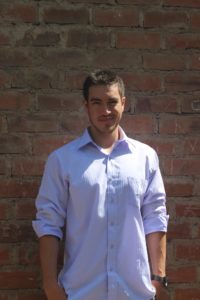Piero Miranda-Carrillo is a researcher and politically engaged Peruvian. He studied Political Science at Pontificia Universidad Católica del Perú and holds a master’s degree in Anthropology from PUCP. He worked as a government councillor for the San Miguel district in 2015-2018, and did his fieldwork research on urban citizens in relation to participation, culture, sports, animals and health. Currently he’s researching how social relationships change in the digital world in the context of the coronavirus pandemic in Lima. For antropologen.nl, he wrote about his experiences during this pandemic.
Author: Piero Miranda-Carrillo
Suddenly, the world has stopped. No one really knows what has happened as we are flooded by waves of uncertain news. But surely, we feel the consequences of this disease called Covid-19. I remember the day when I watched the news coming from China in the beginning of March, about a new virus that was claimed to come from bats and that had already caused a lot of deaths during the first week it was discovered. Here in Peru, everyone thought it was a weird disease in another faraway part of the world, like avian influenza, swine Influenza or anthrax. At the same time, people thought the effects of the virus were under control. Therefore, here in Lima, the capital of Peru, a lot of people didn’t take it seriously. In the beginning, a huge part of the nation remained unprotected and ignorant about what the Coronavirus really is. Gradually the government took preventive measurements to stop the spreading of Covid-19. First two weeks of quarantine were announced, then restrictions on free movement in the city were implemented. And around the same time the obligation to wear a face mask came into effect. Suddenly the economy and society stopped, no cars on the streets, all the malls closed. The sound of silence remained. Where does this virus come from? What is it really? Is it a biological weapon (created in laboratories as Donald Trump claims)? Was it a punishment from god? There are a lot of questions we can start to ask ourselves about the way people are living. No one really knows when this pandemic is going to end. Some people live in conditions in which they can only focus on the present day and how to survive it. The amount of deaths, the hopelessness of the situation, the fears people have, everything keeps changing day by day. Something encouraging in these circumstances is the fact that many motivated people go into the streets to give hope and food to people who really need it. They are just people living in the neighborhood trying to change something for the better with the help of the police and other neighbors. They bring food and special notes that read: “¡Fuerzas, buen provecho!, ¡Muchos Animos!”.
Nowadays, the only future people can see is today, because no one knows how things will turn out to be after this strange period. Let’s change the pessimist way of looking at society as a dark place in a frightening world, because if you carefully look around it becomes clear that concrete answers to this crisis start with the help people provide to others. If you are part of a group who used to play soccer every Saturday, talk to them and start an initiative to collect clothes, or food, for example. You and all your close friends can make a difference in this interconnected world. When this situation is over, because it will pass, the big solutions lie in cooperation, people helping each other and rethinking what it means to be a citizen. Just think about it.

